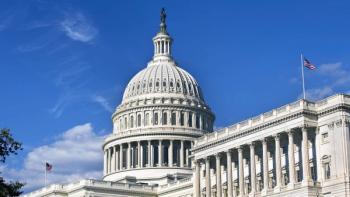
Leading legislators have launched the campaign to enact a second version of the 21st Century Cures Act.

Jill Wechsler is Pharmaceutical Technology's Washington Editor, jillwechsler7@gmail.com.

Leading legislators have launched the campaign to enact a second version of the 21st Century Cures Act.

The White House has nominated Robert Califf to head FDA, ending months of uncertainty about the future path for the high-profile agency.

The Democratic legislative proposal to authorize price negotiations on costly medicines covered by Medicare has drawn opposition from brand pharmaceutical and biotech companies.

Democratic leaders in the House and Senate appear to have reached a compromise on a relatively modest plan for controlling prices on certain prescription drugs.

New methods and policies necessitated by the global pandemic are slated to become permanent fixtures in FDA enforcement and regulatory programs.

FDA has worked to clarify how drug development can gain from tapping into information in health care systems and claims databases.

After months of deliberation, Biden plans to appoint cardiologist Robert Califf as FDA commissioner.

A new program will test the safety and suitability of new inactive ingredients to encourage the accelerated adoption of FDA-accepted excipients in drug development.

FDA and EMA are looking to tap real-world data and real-world evidence more broadly to accelerate the research and market approval process.

The lack of a new permanent commissioner has hampered FDA in articulating future priorities and pushing back against miscommunications and outside complaints.

Biosimilar approvals and the advance of biosimilar testing and production may lead to greater access to alternative therapies.

Pfizer-BioNTech announced plans to seek FDA approval this month of a smaller dose of its Comirnaty vaccine for children ages 5–11.

FDA advisors agreed unanimously on a more limited booster plan after rejecting Pfizer’s original request to authorize its third shot for everyone over age 16.

Democrats failed to gain sufficient support to advance long-debated legislation to permit Medicare drug price negotiations.

The White House announced a nearly $3 billion program to ramp up production of vaccines and their components.

A report from the bipartisan Congressional Budget Office analyzes how drug pricing policies could reduce the number of new therapies coming to market.

Will FDA’s approval of Semglee create a surge in the development of interchangeable biosimilars?

FDA formally unveiled its plan for revising and renewing its fee program for drugs and biologics.

FDA’s full approval of the Pfizer-BioNTech COVID-19 vaccine raises hopes that this action will help overcome vaccine hesitancy.

The user fees set for fiscal year 2022 are noteworthy, as their announcement comes as FDA and industry are finalizing agreements for new five-year user fee programs.

The President calls for granting Medicare authority to negotiate drug prices and penalties for pharma companies that raise prices faster than inflation.

Full approval of COVID-19 vaccines may increase public confidence, but better coordination in development and review is needed.

The agency’s leading cancer expert lashed out at the alarmists and urged continued support for the early access process.

In the first half of 2021, the Center for Drug Evaluation and Research and the Center for Biologics Evaluation and Research approved 29 novel therapies.

FDA officials discuss resuming normal facility inspection operations, both domestic and foreign.

White House proposal includes measure to make drugs more affordable.

FDA’s review and approval of Aduhelm triggers controversy and a call for review from within the Agency.

The rise of COVID variants has made public health officials anxious to expand immunity more widely and quickly in areas with low vaccination rates, and experts hope that full approval of existing and new vaccines will increase public confidence in their value.

An updated version of legislation to modernize clinical research policies and FDA expedited approval pathways is circulating on Capitol Hill.

HHS is tasked with establishing a public-private consortium for advanced domestic pharmaceutical production.